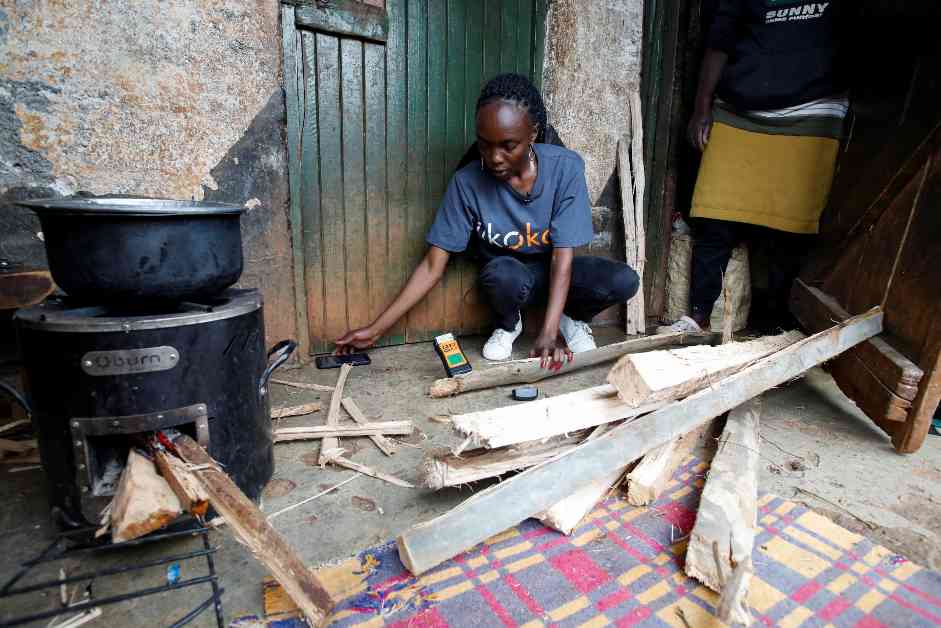Nearly all existing carbon credits generated by cleaner cookstove projects face a new challenge. The Integrity Council for the Voluntary Carbon Market (ICVCM) has made a significant decision that has wide-reaching implications for these projects. On Friday, the ICVCM announced that two popular rulebooks used for carbon offsetting activities aimed at introducing more fuel-efficient cookstoves in households in the Global South were rejected. This rejection means that most cookstove projects cannot claim the coveted “Core Carbon Principles” (CCP) seal of approval. The reason behind this decision is that the ICVCM found the current methodologies used by these projects to be lacking in rigor.
The significance of this announcement lies in the fact that nearly two-thirds of all cookstove offsets available in the market at the end of 2024 were based on these rejected methodologies. This data, analyzed by the Berkeley Carbon Trading Project, reveals the widespread impact of this decision. These projects have come under scrutiny for potentially overstating their climate benefits, highlighting the need for more stringent standards and oversight in the carbon offsetting market.
A New Path Forward: Rigorous Rules Approved
In response to the rejection of the existing methodologies, the ICVCM has approved a new method developed by Verra along with two other rulebooks proposed by Gold Standard. However, there is a catch. Projects seeking approval under these new methodologies will need to comply with stricter technical criteria to assess emission reductions. This move aims to reduce the risk of generating excessive offsets and ensure the integrity of the carbon credit market.
While the credits produced under the newly approved methodologies accounted for less than 3% of the available cookstove offsets at the end of 2024, the impact of this decision is expected to be significant. A spokesperson for Gold Standard emphasized that further assessment will be required to ensure compliance with the new criteria. Additionally, the ICVCM will need to rule on the eligibility of over 28 million cookstove credits issued under older versions of a Gold Standard methodology, highlighting the complexities involved in transitioning to these new standards.
Annette Nazareth, the chair of ICVCM, acknowledged that existing projects will need to adapt to the new methodologies and conditions approved by the council. This transition represents a crucial step towards higher integrity in the market. Verra has set a deadline for developers to update their projects to the new methodology by 2027, signaling a clear timeline for compliance.
Challenges and Opportunities Ahead
The rejection of existing methodologies by the ICVCM sheds light on the challenges faced by the carbon offsetting market, particularly in the cookstove sector. Carbon markets have long been viewed as a crucial source of funding for programs aimed at promoting cleaner cooking methods in developing countries. However, the recent revelations about overestimation of climate benefits by cookstove projects raise questions about the effectiveness and transparency of these initiatives.
Research conducted by the University of California, Berkeley, revealed that cookstove projects often produced significantly more offsets than they should have, primarily due to lax rules that allowed developers to inflate their impact. This overestimation has called into question the credibility of these projects and the accuracy of the emission reductions claimed through carbon credits.
The ICVCM’s decision to approve new, more rigorous methodologies is a step in the right direction to address these challenges. By setting higher standards for assessing emission reductions and ensuring compliance with technical criteria, the council aims to restore trust in the carbon offsetting market. However, the road ahead is not without obstacles, as project developers will need to navigate the transition to these new standards while maintaining the viability of their initiatives.
The recent scandal involving C-Quest Capital, a prominent developer in the cookstove sector, serves as a cautionary tale about the risks associated with fraudulent practices in carbon offsetting. The charges of fraud brought against the former CEO and subsequent bankruptcy filing highlight the need for enhanced oversight and accountability in the industry. As the market grapples with these challenges, the approval of new methodologies by the ICVCM represents a critical milestone in the journey towards a more transparent and sustainable carbon credit market.
In conclusion, the decision by the ICVCM to reject existing methodologies used by cleaner cookstove projects underscores the need for greater scrutiny and accountability in the carbon offsetting market. By approving new, more rigorous standards, the council is taking a proactive step towards ensuring the integrity of carbon credits and promoting sustainable development initiatives. As project developers navigate the transition to these new methodologies, the industry faces both challenges and opportunities to enhance its credibility and effectiveness in addressing climate change.














